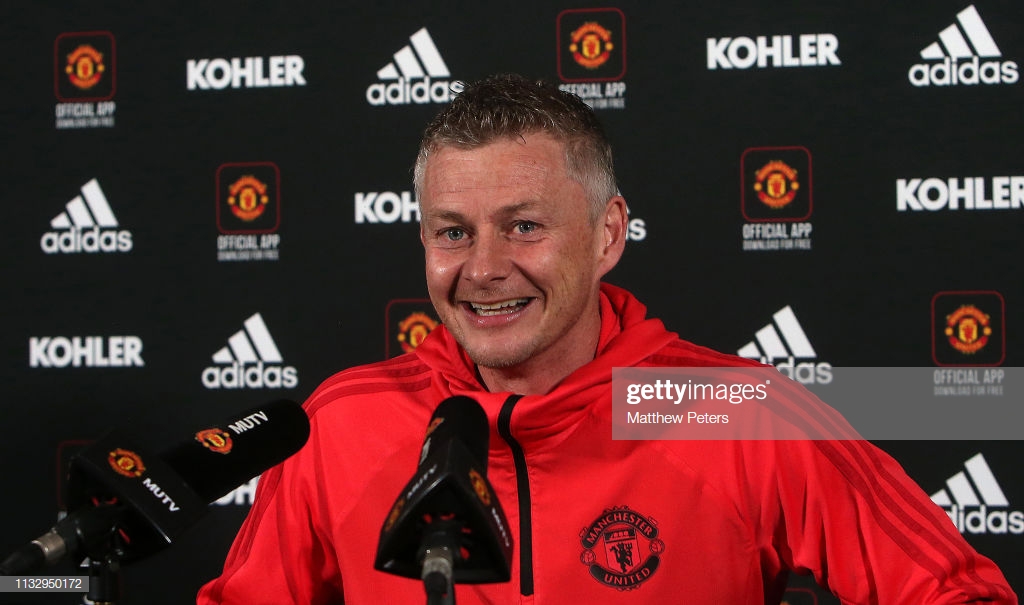In fewer than 100 days, Ole Gunnar Solskjaer and his coaching staff have created an incessantly good mood at Manchester United, a club haunted by its successes of the past and failures of the present for the last half a decade.
Yet such positivity can only co-exist with victories. Solskjaer’s emollient and effervescent appearance would be merely a sugar coating were it not accompanied by victories against opposition of the highest standard in different manners.
United set a club record on Wednesday night with an eighth consecutive away win. They dominated possession and overcame an organised Crystal Palace side despite being without eight first team players.
Palace display showed different qualities
It was a performance far removed from the early trouncings of Huddersfield and Cardiff. It was also a very different display to ones seen elsewhere in the capital, at Spurs, Arsenal and Chelsea.
So much has been said about Solskjaer’s charisma and motivational skills, and yet to direct all praise onto those is patronising. The Norwegian manager has shown significant tactical nous, adaptability and pragmatism to break records at United and in the Premier League while watching his side haul themselves back into the top four race with peculiar ease.
United’s starting line-up against Palace went against pre-match expectations. Fred was brought into the side, but more notably, Solskjaer elected to start two right-backs. Converted winger Ashley Young played in the deeper role while natural defender Diogo Dalot started further forward as a right-winger.
This was somewhat forced through an injury crisis but it was a clever move. Dalot and Young together nullified Wilfried Zaha better than any one defender could do.
Solskjaer's tactical nous must be given credit
Young played in the more traditional full-back role and that, too, was clever. The Englishman may be the veteran, but one of his best attributes is the ability to turn at speed. He’s slippery. Against a player like Zaha who can manoeuvre the ball from inside to outside on a whim, it’s vital and is why Young often copes better than predicted against players of Zaha’s ilk.
Dalot supported him. The youngster and the veteran. It was a small but excellent tactical tweak and it had further impacts, too. Dalot stuck loyally to the touchline on the right flank, something that neither Lingard, Alexis nor Mata do when in the same role. The Portuguese’s instinct to stay wide stretched the Palace defence and United’s play in a game that could typically see United frustrated in the central areas. 30% of United’s play is normally directed down the right side, but that figure rose to 39% on Wednesday.
When United’s defence lost focus momentarily, it conceded. And Solskjaer then showed his in-game qualities by recalibrating his side. Eric Bailly replaced Dalot and United solidified. Young was pushed up and scored six minutes later to wrap the game up.
It was a fantastic win in the face of adversity. So much of Solskjaer’s time in charge up to now has been asterisked by question after question. Can he do it against the elite sides? Tick. Can he endure adversity? Tick. Can he make impactful in-game changes? Tick. Can his side bounce back from defeat? Tick.
Delegator or tactically impressive
Either Solskjaer has superb tactical judgement or the coaches alongside him do. Neither scenario is a negative one. If it is the latter, Solskjaer is showing the qualities of Sir Alex Ferguson in being able to delegate well. If it is the former, then United have probably found their man.
United surprised Tottenham and Mauricio Pochettino in January when they split Rashford and Martial into the wide areas and played Lingard through the middle, preventing Spurs from playing from defence into midfield and isolating their full-backs. Dalot was subbed on to sure things up with 10 minutes remaining and did so.
Elsewhere in North London, Lukaku was pushed wide at Arsenal and successfully created two goals. Martial and Rashford were kept on the bench and then unleashed to take the game away from Unai Emery’s men.
Solskjaer simply couldn’t react quick enough in his only defeat, to Paris Saint-Germain. But his United side showed their bounce-back ability with a rare victory at Stamford Bridge. No ground has proven more difficult for the Reds, no matter who the manager has been, but by changing United’s shape and starting Juan Mata at the tip of a midfield diamond, Solskjaer overcame that challenge, too.
It’s no surprise given the preparation that goes into games. Kieran McKenna and Michael Carrick handle the majority of training and Solskjaer is rarely seen delivering a full session, instead spending time with Mike Phelan on upcoming games.
United’s next three away games are season-defining. A trip to the Parc de Princes and PSG is coming up first. The Reds *shouldn’t* progress in the Champions League and very few will back them to, but in this form and with this away record, some will be tempted to place their faith in Solskjaer. Then United travel to Arsenal where a win would put them as favourite for the all-important fourth place. That’s all before an FA Cup quarter-final against Wolves takes place on a Saturday night.
The club’s season could easily veer towards futility over the next two weeks if all three games are lost. And yet, one feels that will not happen. When Solskjaer arrived just before Christmas, United’s season was dead. The stone has been rolled back, and a fearsome side has emerged from the tomb, led by a man who is getting deserved credit, but not necessarily for all the right reasons.









































